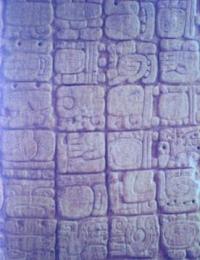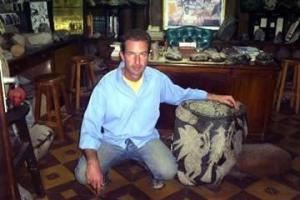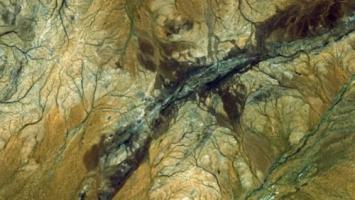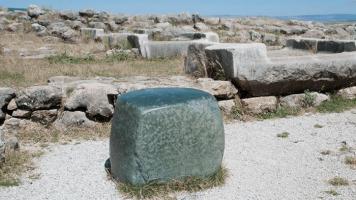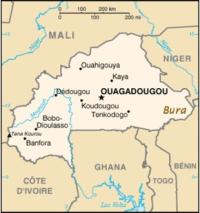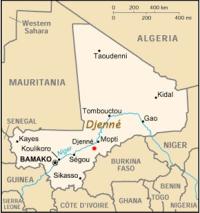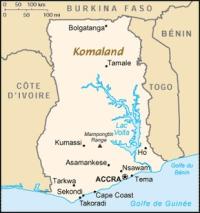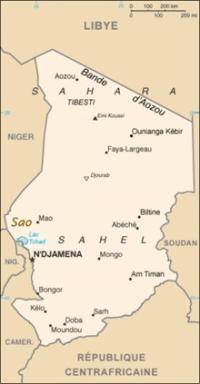Copy Link
Add to Bookmark
Report
AIList Digest Volume 5 Issue 217

AIList Digest Saturday, 19 Sep 1987 Volume 5 : Issue 217
Today's Topics:
Comment - Duplication of AI Literature Titles,
Philosophy - Boltzmann on Philosophy & Natural Kinds,
Computer Science - Discipline Nature & P = NP ?
----------------------------------------------------------------------
Date: Mon, 14 Sep 87 12:53:58 pdt
From: Eugene Miya N. <eugene@ames-pioneer.arpa>
Subject: Note on MP biblio update (WARNING!)
Please excuse cross-posting to so many newgroups, but I believe the
following to be important.
Recently, while updating bibliographic entries, I have noticed a
disturbing trend. I had to resolve in excess of 300 name conflicts
in 8,000. Most were updates in status from TRs to Journals or Books.
But a size percentage were papers publised in more than one location
(31 titles total), and papers/texts with the same title, but different
authors/contents, etc. (18, remember double each of these counts for a
lower bound). Increasing interest is creating a bigger headache
For example: popular titles include:
%T Distributed Operating Systems (one book, one article)
%T Elliptic Problem Solvers
%T Supercomputers (3 books this title)
%T Supercomputers in Theoretical and Experimental Science (one book, one
article)
%T A Framework for Distributed Problem Solving
%T Estimating Speedup in Parallel Parsing
%T Multi-grid solvers on parallel computers
One interesting name conflict seems to come from titles of SIMD processors
such as [SIMD titles]
%T The Distributed Array Processor
%T The Massively Parallel Processor
which occur in some cases 4-5 times. Will Connection Machine papers be
far behind?
From the Rock of Ages Home for Retired Hackers:
--eugene miya
NASA Ames Research Center
eugene@ames-aurora.ARPA
"You trust the `reply' command with all those different mailers out there?"
"Send mail, avoid follow-ups. If enough, I'll summarize."
{hplabs,hao,ihnp4,decwrl,allegra,tektronix,menlo70}!ames!aurora!eugene
------------------------------
Date: Mon, 14 Sep 87 11:51:26 EDT
From: mckee%corwin.ccs.northeastern.edu@RELAY.CS.NET
Subject: Boltzmann on philosophy
and as long as we're collecting anti-philosophical quotes:
There is much that is appropriate and correct in the writings of
these philosophers. Their remarks, when they denounce other
philosophers, are appropriate and correct. But when it comes to
their own contributions, they are usually not so.
- Ludwig Boltzmann
Quoted in the preface to John Casti's "Connectivity, Complexity, and
Catastrophe in Large-Scale Systems" (1979). No citation for Boltzmann,
though...
------------------------------
Date: 14 Sep 87 15:03:19 GMT
From: Gilbert Cockton <mcvax!hci.hw.ac.uk!gilbert@seismo.CSS.GOV>
Reply-to: Gilbert Cockton <mcvax!hci.hw.ac.uk!gilbert@seismo.CSS.GOV>
Subject: Re: Natural kinds
In article <"870828113435.1.rjz@JASPER"@UBIK.Palladian.COM>
rjz%JASPER@LIVE-OAK.LCS.MIT.EDU writes:
>In McCarthy's message of Jul 10, he talks of the need for AI
>systems to be able to learn and use "natural kinds",
I'd like to continue the sociological perspective on this debate.
Rule number 1 in sociology is forget about "naturalness" - only
sociobiologists are really into "nature" now, and look at the foul
images of man that they've tried to pass off as science (e.g. Dworkin).
> McCarthy's original point is the more crucial: that people seem to be able
> to classify objects in the absence of precise information.
Psychologists cram a lot under the heading of "ability". The learner
is often assumed to have an active, conscious problem solving role.
When dealing with formal problems and knowledge, such a
characterisation seems valid. With social constructs such as informal
categories, "ability" is not the result of an active learning process.
Rather the ability follows automatically from cultural immersion.
>This is important if individuals are to "make sense" of their world,
>meaning they are able to induce any significant
>generalizations about how the world works.
Artifacts of civilization are only induced once. Thereafter, if they
fulfil social needs, they remain unchanged. Rather than induce what a
chair is, children learn what it is as part of their sociolinguistic
development. They come to know what a chair is without ever actively
and consciously inducing a formal definition.
>Perhaps we could call this expanded notion an "empirical kind".
"Empirical" is about as helpful as "natural" when it comes to reasoning
about social phenomena.
>Third: Such "kinds" are especially important for communicating with other
>individuals. Being based on individual experience, no two persons'
> conceptions of a given concept can be assumed to correspond _exactly_.
At last, some social reasoning :-)! However, surface differences in
statements about meaning do not imply deep differences over the real
concept. The problem is one of language, not thought. Note also that
where beliefs about a concept are heavily controlled within a society,
public expression about a concept can be almost identical. See under
ideology or theocracy.
Once again, the reason why so much AI research is just one big
turn-off is that much of it is a very amateur and jargon-ridden
sophomore attempt at formalising phenomena which are well understood
and much studied in other real disciplines. Anthropological studies of
the category systems of societies abound. Levi-Strauss for one has
explored the reoccurance of binary oppositions in many category
systems. The difference between the humanities and AI is mainly that
the former are happy to write, as elegantly as possible, in natural
language, whereas in the latter there is a fetish for writing in a
mixture of LISP, cut-down algebra and folk-psychology without an ounce
of scholarship. There is rigour no doubt, but without scholarship it
is worthless. Artificial ignorance is an apt characterisation.
The debate on natual kinds appears to have emerged from a discussion
of where AI needs to go next. Perhaps AI folk should drop the
hill-climbing and take their valuable techniques back into the
disciplines which can make use of them in a sensible and balanced way.
Then perhaps only programmes worth writing will be implemented and
this nonsense about tidying up poorly expressed ideas on a dumb
machine can be interred once and for all.
--
Gilbert Cockton, Scottish HCI Centre, Ben Line Building, Edinburgh, EH1 1TN
JANET: gilbert@uk.ac.hw.hci ARPA: gilbert%hci.hw.ac.uk@cs.ucl.ac.uk
UUCP: ..{backbone}!mcvax!ukc!hwcs!hci!gilbert
------------------------------
Date: 16 Sep 87 14:21:59 GMT
From: styx.rutgers.edu!schaffer@RUTGERS.EDU (Schaffer)
Subject: Patrick Hayes on AI & Science
Section 10 of Hayes's paper "The Second Naive Physics Manifesto" is
entitled "Is This Science?" The section is reproduced in full here:
The earlier manifesto ended on a note of exquisite methodological
nicety: whether this activity could really be considered *scientific*.
This second manifesto will end on a different note. Doing this job
is necessary, important, difficult and fun. Is it really scientific?
Who cares?
------------------------------
Date: Wed 16 Sep 87 17:06:07-PDT
From: Andy Freeman <ANDY@Sushi.Stanford.EDU>
Subject: Materials Science
appears to be a science. It is the exception that tests the rule
"Every field with `science' in its name isn't."
-andy
------------------------------
Date: 17 Sep 87 05:45:57 GMT
From: pioneer!eugene@ames.arpa (Eugene Miya N.)
Subject: Re: Is Computer Science Science?
Not a science yet, but as Mike Shafto pointed out. Denning will have
column in American Scientist on this (I am reviewing) Nov. maybe. I will have
two papers on this in ACM Software Engineering Notes (positive
suggestions for improvements), and I also suggest reading the paper
by Knuth in 1985 Amer. Math. Monthly on the differences between
Mathematical and Algorithmic thinking (Computation != math),
and oh yes, Simon's "Sciences of the Artificial" especially the
chapter on Empiricism (and his Turing award lecture).
Summary and concesses? It aspires, it's different from other sciences,
it can be improved. Need we say more?
From the Rock of Ages Home for Retired Hackers:
--eugene miya
NASA Ames Research Center
eugene@ames-aurora.ARPA
"You trust the `reply' command with all those different mailers out there?"
"Send mail, avoid follow-ups. If enough, I'll summarize."
{hplabs,hao,ihnp4,decwrl,allegra,tektronix,menlo70}!ames!aurora!eugene
------------------------------
Date: 16 Sep 87 22:12:41 GMT
From: ramesh@cvl.umd.edu (Ramesh Sitaraman)
Subject: Re: Is Computer Science Science?
In article <737@elmgate.UUCP> ram@elmgate.UUCP (Randy Martens) writes:
>I am of the firm opinion that there is NO such thing as
>computer science.
Unfortunately you are totally wrong!!! The scientific part of CS
deals with unravelling the nature of computation. This is the
object of study of theoretical areas such as Complexity theory,
recursive function theory, programming language semantics etc.
Computation is an abstract process but unlike other abstract
formalisms is immediately applicable and can be realised through
physical computers. Thus there has been such an overwhelming
growth in computer applications that the applicational aspects of CS are
more evident to an *outsider* than the theoretical core.
Note that computation existed long before computers. Neither Eratosthenes
or Galois knew anything about digital computers but they certainly
did know about computation. Therefore the development of computers,
though extremely beneficial, is only incidental to a theoretician.
>"Reality - What a Concept !" - R.Williams
Ramesh
--
-----------------------------------------------------------------
ARPA: ramesh@cvl.umd.edu | If I had had more time, I could
SPRINT:(301) 927 6831 | have written you a shorter letter.
UUCP: ramesh@cvl.uucp | -Blaise Pascal
------------------------------
Date: 17 Sep 87 13:31:08 GMT
From: sunybcs!bingvaxu!leah!uwmcsd1!uwm-cs!litow@rutgers.edu (Dr. B.
Litow)
Subject: Re: Is Computer Science Science?
In article <2474@cvl.umd.edu>, ramesh@cvl.umd.edu (Ramesh Sitaraman) writes:
> In article <737@elmgate.UUCP> ram@elmgate.UUCP (Randy Martens) writes:
> >I am of the firm opinion that there is NO such thing as
> >computer science.
>
> Unfortunately you are totally wrong!!! The scientific part of CS
> deals with unravelling the nature of computation. This is the
> object of study of theoretical areas such as Complexity theory,
> recursive function theory, programming language semantics etc.
> Computation is an abstract process but unlike other abstract
> formalisms is immediately applicable and can be realised through
> physical computers. Thus there has been such an overwhelming
> growth in computer applications that the applicational aspects of CS are
> more evident to an *outsider* than the theoretical core.
I agree with this poster. I fact I would go on to say that the design of
programming languages,systems and such things as network protocols,etc.
are also just applications. I earlier posted my belief that CS is an entirely
new branch of mathematics so that in a way
CS is indeed not a science in the sense that physics is a science. However,
there are profound issues at the border of CS and physics,for example which
I take as a sound indication of the depth of CS. The confounding of CS with
its applications can only impede progress especially in the matter of new
applications.
The failure to consider 'TCS' as real CS is becoming a serious matter and
I think that the current accreditation issue for CS in colleges must be
resolved in a manner that places sufficient emphasis on computation theory.
I close with an example. The emergence of NC and related parallel computing
models out of alternating Turing machine studies of the late 70's is
a clear indication of the power of good theory.
------------------------------
Date: Thu, 17 Sep 87 15:03:33 EDT
From: dml@NADC.ARPA (D. Loewenstern)
Subject: Re: Is Computer Science is Science?
>From: kodak!elmgate!ram@cs.rochester.edu (Randy Martens)
>I am of the firm opinion that there is NO such thing as
>computer science. To quote (and I have forgotten the attribution)
>"Computer Science bears the same relationship to Real Science, that
>plumbing bears to Hydrodynamics."
>There is, however, Computer Engineering. (and Software Engineering,
>and Systems Engineering etc.). Science is the discovery of the new.
>Engineering takes what the scientists have found, and finds ways
>to do useful things with it. The two are like Yin and Yang, closely
>interrelated, but not the same, and each dependant on the other.
I think that what Mr. Martens has said is:
1. a. Science is the discovery of the new.
b. There is no such thing as computer science.
=> There is no discovery of the new in the realm of computers.
2. a. Engineering takes what the scientists have found...
=> Computer Engineering takes what the Computer Scientists have found...
b. There is no such thing as computer science.
=> There are no computer scientists.
=> Nothing has been found by computer scientists.
=> Computer Engineering takes nothing and finds ways to do useful
things with it. (8v))
David Loewenstern
Naval Air Development Center
code 7013
Warminster, PA 18974-5000
<dml@nadc.arpa>
------------------------------
Date: 15 Sep 87 09:49:49 GMT
From: mcvax!hafro!krafla!snorri@seismo.css.gov (Snorri Agnarsson)
Subject: Re: P may indeed = NP !!
...
> "Dr. Swart's problem establishes that the Hamilton circuit problem can
> be solved in polynomial time by converting a mathematical programming
> formulation of the problem into a linear programming formulation and
> using existing polynomial time algorithms as established by Kachiyan
> and Karmarkar."
...
OK - let me take a guess as to what is wrong with this approach:
My guess is that Karmarkars polynomial time algorithms are only
polynomial time if calculations are performed using fixed accuracy
floating point arithmetic, and if infinite precision arithmetic is
used then the algorithms are no longer polynomial time.
Furthermore, I would guess that to solve the Hamiltonian circuit
problem you would need infinite precision arithmetic.
--
Snorri Agnarsson UUCP: snorri@rhi.edu
Science Istitute ...!mcvax!hafro!rhi!snorri
University of Iceland
------------------------------
Date: 17 Sep 87 03:02:38 GMT
From: linus!bs@husc6.harvard.edu (Robert D. Silverman)
Subject: Re: P may indeed = NP !!
In article <11@krafla.UUCP] snorri@krafla.UUCP (Snorri Agnarsson) writes:
]
]My guess is that Karmarkars polynomial time algorithms are only
]polynomial time if calculations are performed using fixed accuracy
]floating point arithmetic, and if infinite precision arithmetic is
]used then the algorithms are no longer polynomial time.
]Furthermore, I would guess that to solve the Hamiltonian circuit
]problem you would need infinite precision arithmetic.
]--
]Snorri Agnarsson UUCP: snorri@rhi.edu
]Science Istitute ...!mcvax!hafro!rhi!snorri
]University of Iceland
Sorry, your guess makes some sense but is incorrect. The arithmetic precision
required for Khachian's algorithm (and Karmarkar's) may be built into the
algorithm. Secondly, all linear programming problems with rational coefficients
may be solved using finite precision.
I'm getting tired of hearing about P=NP proofs. It reminds me too much of
the many crackpots from previous generations who tried to 'square the circle'
or 'trisect a general angle' with straightedge and compass. All of the P=NP
proofs reported so far have the same flaw: They try to formulate an NP problem
as a linear program but ALL wind up requiring an exponential number of
variables in the size of the problem instance.
Bob Silverman
------------------------------
End of AIList Digest
********************















